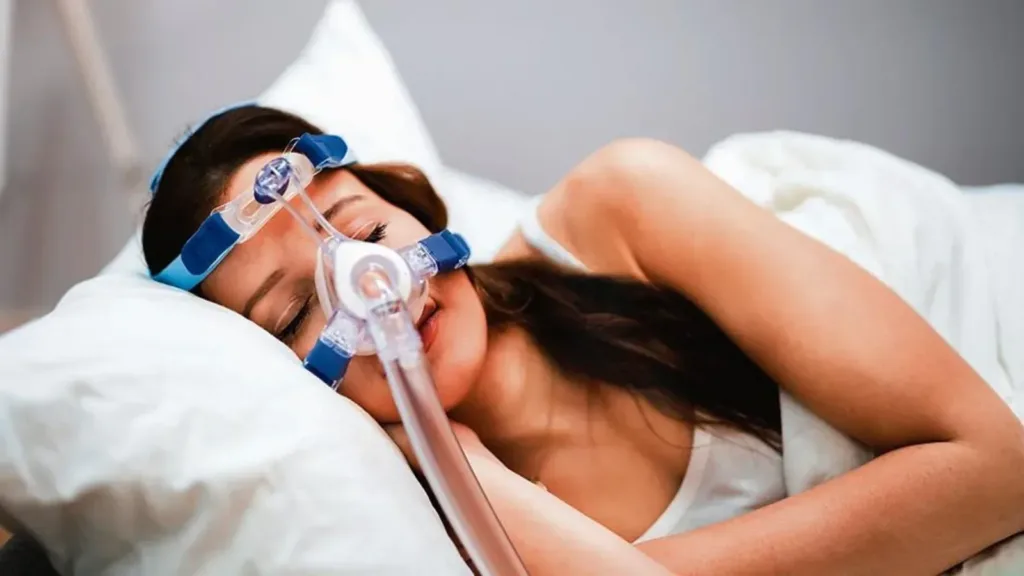Introduction
Sleep apnea is a common but serious sleep disorder that affects millions of people worldwide. It occurs when a person’s breathing is repeatedly interrupted during sleep, leading to poor sleep quality and numerous health issues. This article delves into whether sleep apnea makes you tired, exploring the causes, symptoms, and treatments of this condition.
Understanding Sleep Apnea
Types of Sleep Apnea
Obstructive Sleep Apnea (OSA)
Obstructive Sleep Apnea (OSA) is the most common form of sleep apnea. It happens when the muscles in the throat relax excessively, blocking the airway and causing breathing pauses.
Central Sleep Apnea (CSA)
Central Sleep Apnea (CSA) is less common and occurs when the brain fails to send the correct signals to the muscles that control breathing.
Symptoms of Sleep Apnea
Symptoms of sleep apnea include loud snoring, gasping for air during sleep, waking up with a dry mouth, morning headaches, difficulty staying asleep (insomnia), excessive daytime sleepiness (hypersomnia), and difficulty paying attention while awake.
How Sleep Apnea Affects Sleep
Sleep Disruption
Sleep apnea causes frequent interruptions in sleep, preventing sufferers from reaching and maintaining the deeper stages of sleep necessary for rest and recovery.
Impact on Sleep Stages
The condition disrupts the normal sleep cycle, particularly affecting REM sleep, which is crucial for cognitive functions and overall health.
Does Sleep Apnea Make You Tired?
Daytime Fatigue
One of the most common and debilitating symptoms of sleep apnea is daytime fatigue. This happens because the body is repeatedly woken up throughout the night to restart breathing, preventing a full night’s rest.
Sleep Deprivation
Chronic sleep deprivation due to sleep apnea can lead to severe tiredness, affecting a person’s ability to function during the day.
The Science Behind Fatigue and Sleep Apnea
Oxygen Deprivation
Sleep apnea leads to low oxygen levels in the blood, which can cause the body to work harder to maintain adequate oxygenation, contributing to feelings of fatigue.
Sleep Fragmentation
The repeated awakenings caused by sleep apnea lead to fragmented sleep, which prevents the body from completing the natural sleep cycles needed for restorative rest.
Diagnosing Sleep Apnea
Medical History and Physical Exam
A thorough medical history and physical examination are the first steps in diagnosing sleep apnea. Your doctor will ask about your symptoms and may perform a physical exam to check for physical factors that could be causing the condition.
Sleep Studies (Polysomnography)
Polysomnography is the gold standard for diagnosing sleep apnea. This overnight sleep study measures various bodily functions, including brain waves, oxygen levels, heart rate, and breathing patterns.
Treatments for Sleep Apnea
Lifestyle Changes
Lifestyle changes such as losing weight, quitting smoking, and avoiding alcohol can help alleviate the symptoms of sleep apnea.
Continuous Positive Airway Pressure (CPAP)
CPAP therapy involves wearing a mask over the nose or mouth while sleeping. The mask is connected to a machine that delivers a continuous stream of air to keep the airways open.
Oral Appliances
Oral appliances are designed to keep the throat open by bringing the jaw forward. These are often used for mild to moderate cases of obstructive sleep apnea.
Surgery
In some cases, surgery may be necessary to remove or shrink tissue, reposition the jaw, or implant devices to keep the airway open.
Managing Daytime Fatigue
Importance of Treatment Adherence
Adhering to sleep apnea treatment is crucial for managing daytime fatigue. Consistent use of CPAP or other prescribed therapies can significantly improve sleep quality.
Napping Strategies
Short naps during the day can help alleviate fatigue without interfering with nighttime sleep.
Energy-Boosting Activities
Engaging in regular physical activity, maintaining a balanced diet, and staying hydrated can help boost energy levels.
Impact of Sleep Apnea on Daily Life
Work Performance
Sleep apnea can negatively impact work performance due to excessive daytime sleepiness and lack of concentration.
Mood and Mental Health
The condition is linked to mood disorders such as depression and anxiety, further contributing to feelings of tiredness and low energy.
Relationships
Sleep apnea can strain relationships, as it may affect a partner’s sleep due to loud snoring and restlessness.
Waklert 150mg and Sleep Apnea
What is Waklert 150mg?
Waklert 150mg is a medication that promotes wakefulness and is commonly used to treat excessive daytime sleepiness associated with sleep disorders, including sleep apnea.
How Waklert 150mg Can Help
Waklert 150mg helps to improve alertness and reduce feelings of fatigue during the day, which can be beneficial for individuals with sleep apnea who experience significant daytime sleepiness.
Usage and Precautions
It is important to use Waklert 150mg as prescribed by a healthcare provider. Potential side effects include headaches, nausea, and dizziness. Patients should discuss their medical history and any other medications they are taking with their doctor before starting Waklert 150mg.
Lifestyle Tips for Better Sleep
Sleep Hygiene Practices
Maintaining a consistent sleep schedule, creating a restful sleeping environment, and avoiding caffeine and electronics before bed can improve sleep quality.
Diet and Exercise
Regular exercise and a healthy diet play a vital role in promoting good sleep. Avoid heavy meals and excessive fluid intake before bedtime.
Stress Management
Techniques such as meditation, deep breathing exercises, and yoga can help reduce stress and improve sleep quality.
When to Seek Professional Help
Recognizing Severe Symptoms
If you experience severe symptoms such as choking or gasping during sleep, significant daytime sleepiness, or if your sleep apnea treatment is not effective, it is important to seek professional help.
Consulting a Sleep Specialist
A sleep specialist can provide comprehensive evaluation and treatment plans tailored to your specific condition.
Myths and Misconceptions About Sleep Apnea
Common Myths
There are many myths about sleep apnea, such as it only affects older people or those who are overweight. In reality, sleep apnea can affect anyone, regardless of age or body type.
The Truth Behind These Myths
Understanding the truth behind these myths can help in recognizing and treating sleep apnea effectively.
Living with Sleep Apnea
Success Stories
Hearing success stories from others who have managed their sleep apnea can provide encouragement and insights into effective management strategies.
Support Groups and Resources
Joining support groups and accessing resources can offer additional support and information for those living with sleep apnea.
Conclusion
Sleep apnea is a serious condition that significantly impacts sleep quality and daytime energy levels. Proper diagnosis and treatment are crucial for managing symptoms and improving quality of life. Medications like Waklert 150mg can be beneficial for combating daytime fatigue, but it is essential to use them under medical supervision. By making lifestyle changes and adhering to treatment plans, individuals with sleep apnea can lead healthier, more energetic lives.



